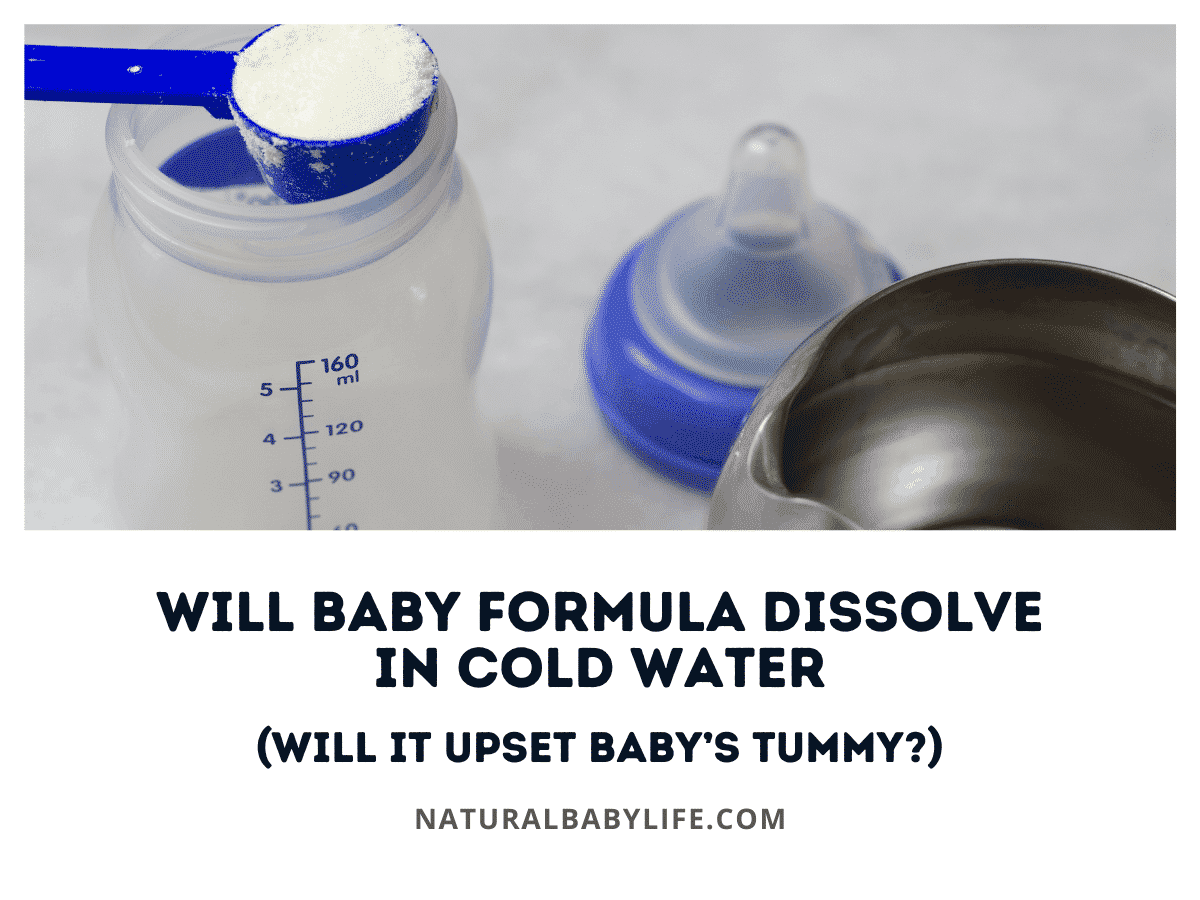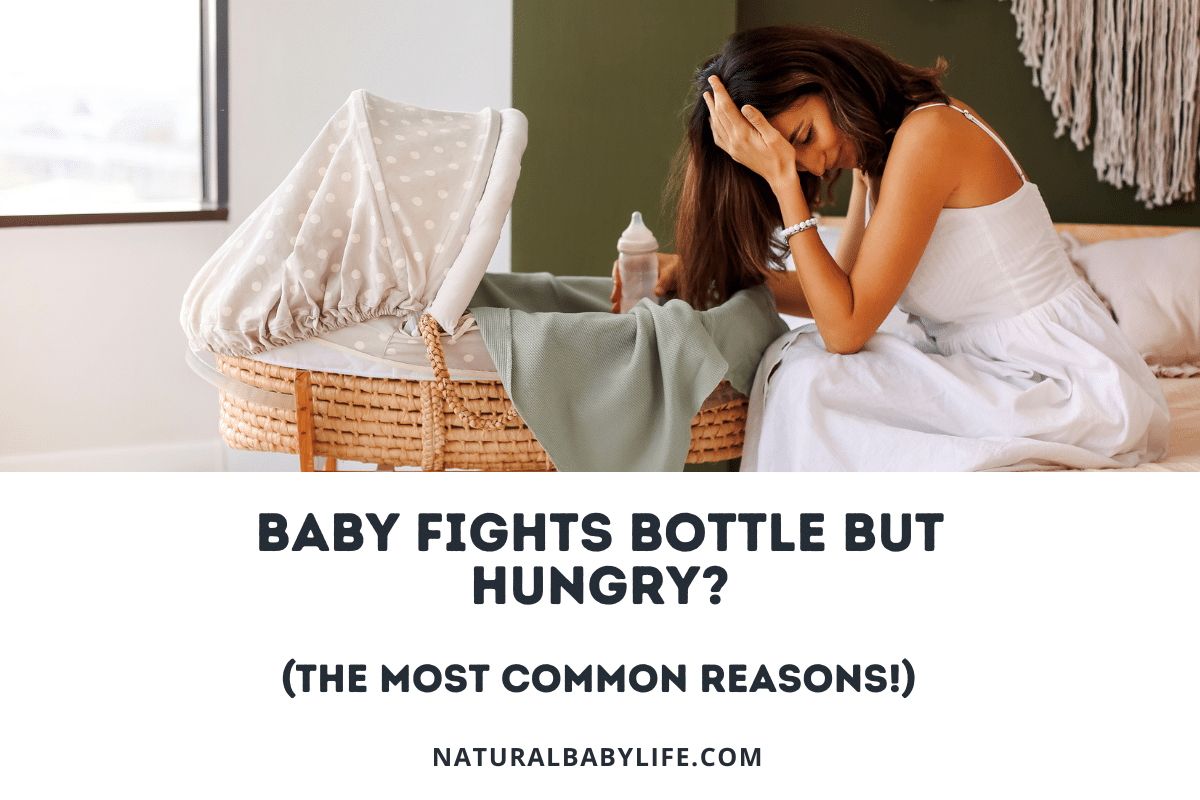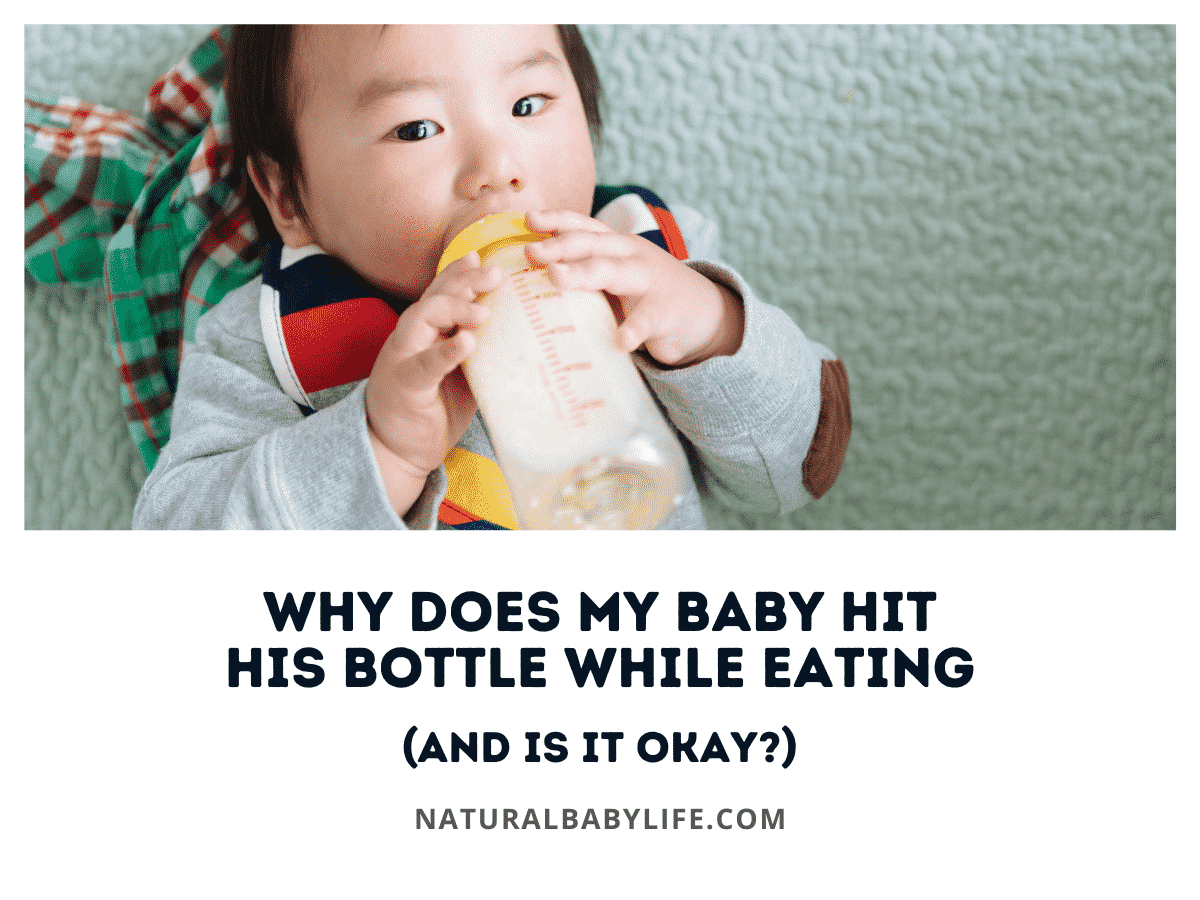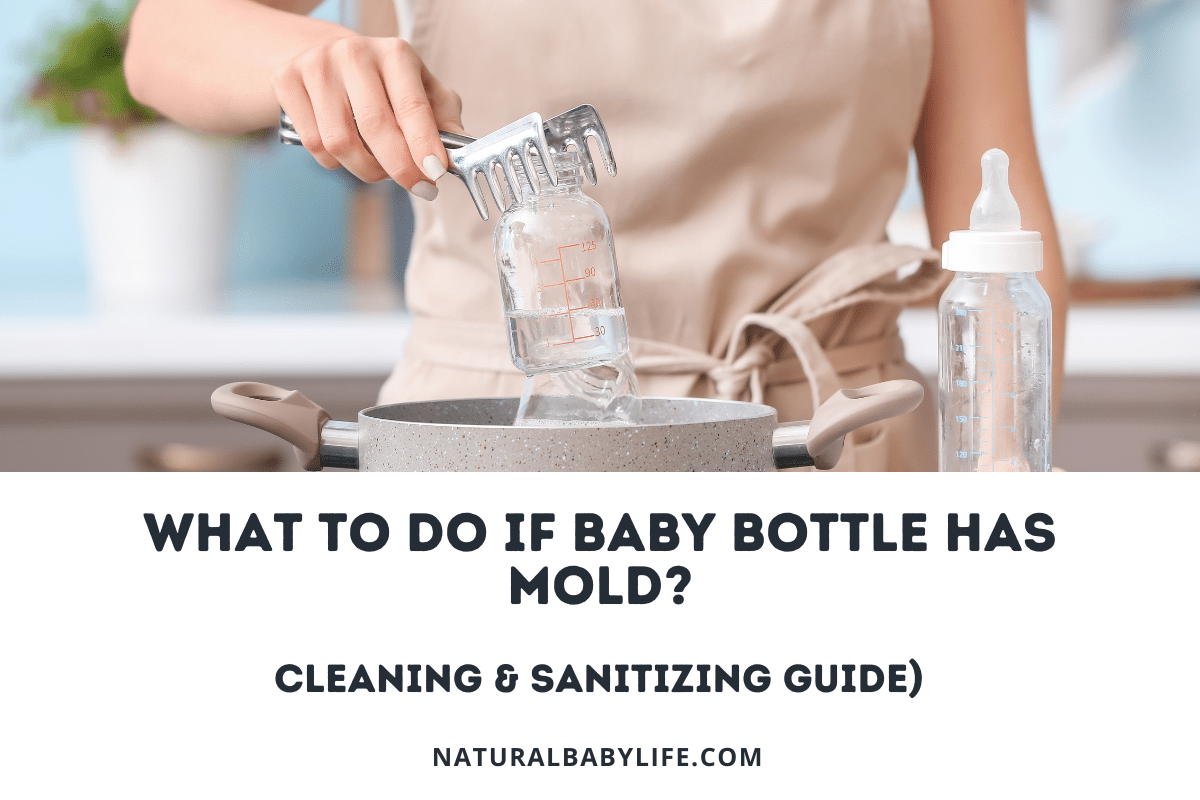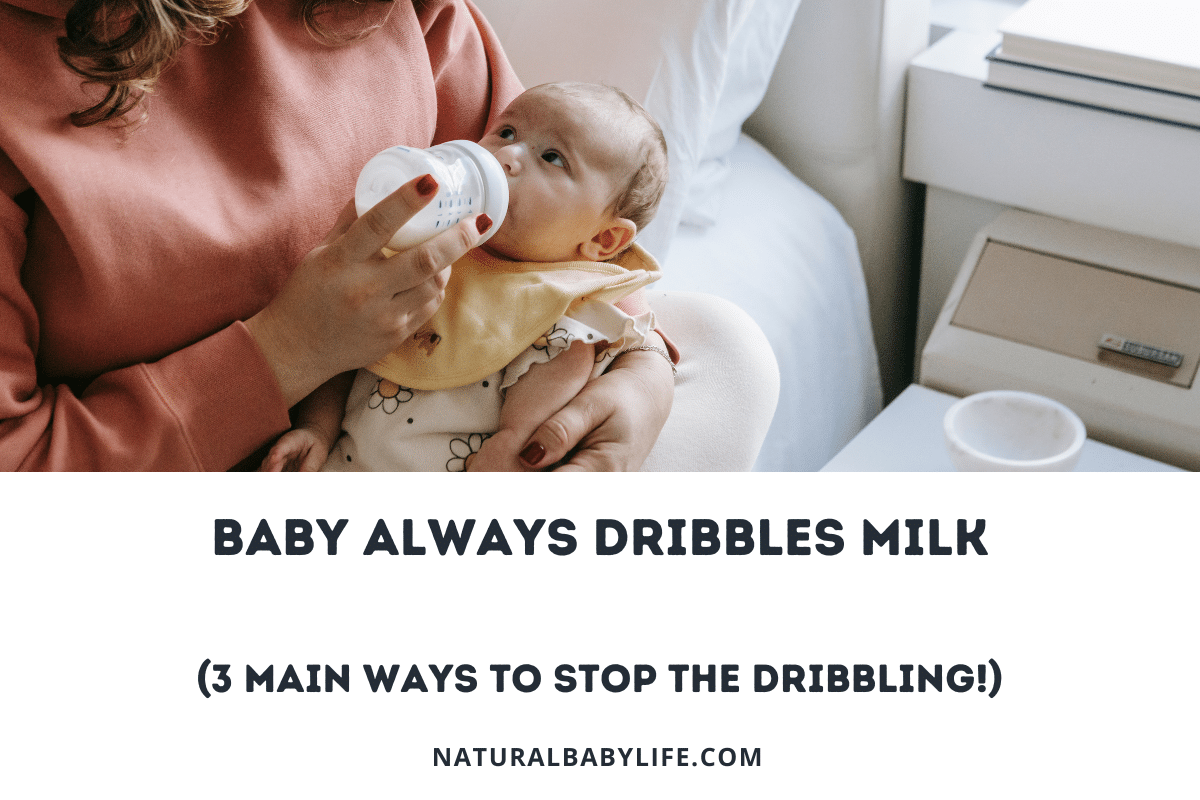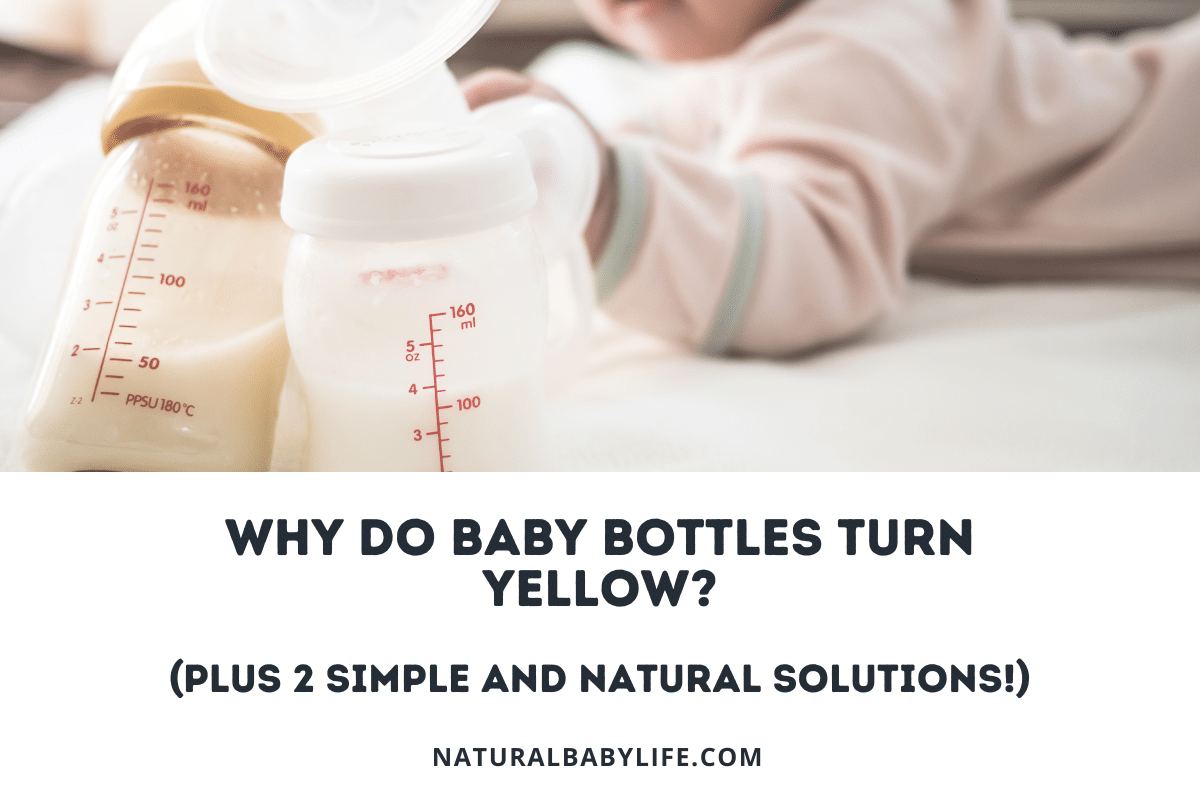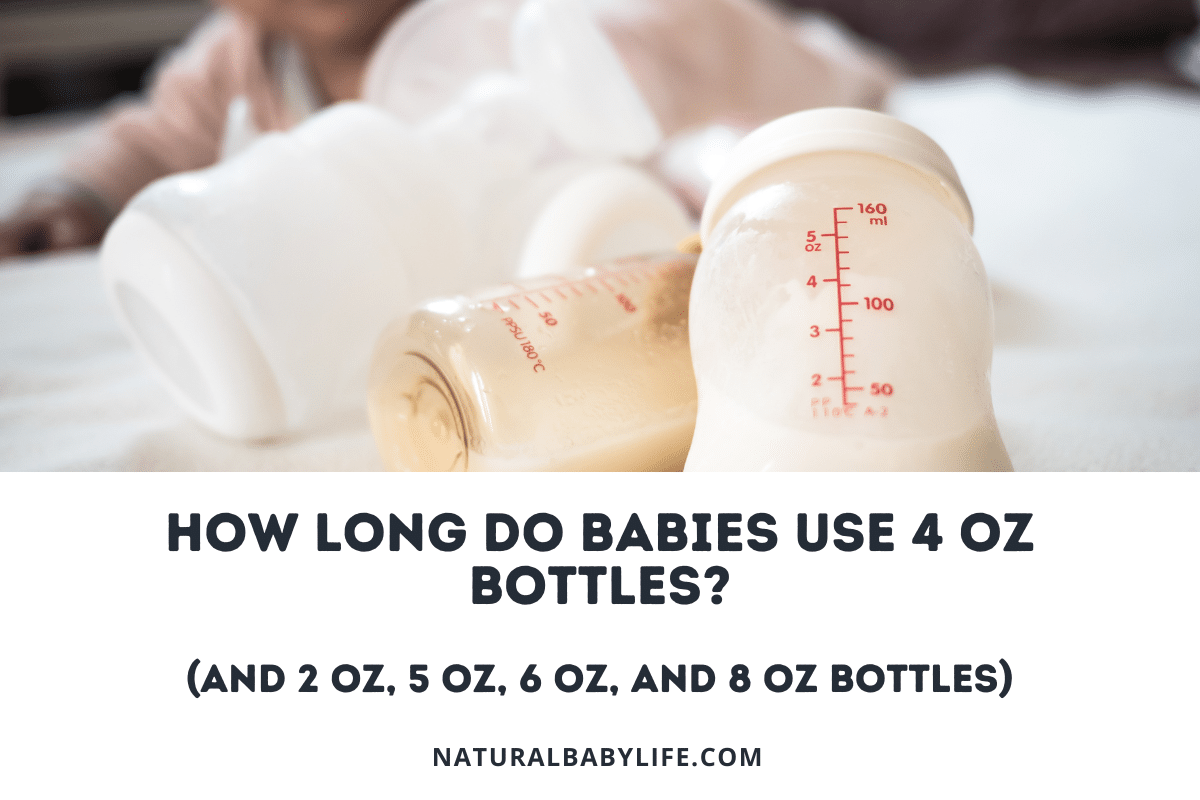Many parents think that their baby’s formula must be mixed with warm water, and that cold water might cause harm to their little one, and even an upset tummy. But is this true? Will baby formula dissolve in cold water?
Despite many parents’ initial beliefs, baby formula can be made with cold water just as well as warm water, and some babies may even prefer it! As long as your water source is safe, you do not need to boil it when mixing formula for babies over four months with healthy immune systems. Some sources, such as well water, will always need to be boiled.
Read on to find out more about the different types of water you can use to make your little one’s formula, and those you should not use.
Table of Contents
Can you mix baby formula with cold water?
Some parents may have the assumption that you need to mix your baby’s bottles with warm or boiled water only. While it is true that some babies – especially those accustomed to breastfeeding – seem to prefer drinking their bottles warm, there is no reason why a bottle would have to be made with warm water.
Cold water is perfectly fine for your little one’s formula. In fact, on a warm day your baby might even prefer it! Many people associate the warmth of a bottle with cozy feelings, but don’t you also enjoy a cold water bottle on a hot summer day? Cold formula may even be helpful for teething.
While it is not recommended for use with newborns whose bodies are still learning temperature regulation, there is no medical reason that your little one cannot have a cold bottle instead of a warm one. If your baby will drink it, making formula with cold water can save you time.
Also, as long as your water source is safe and dependable, you most likely do not need to boil your water first.
Do you have to boil water for formula?
The reason that many parents think that boiling water is necessary, is because many formula companies include this step in the directions for their product. However, some formula brands in some countries do not include it. In addition, there is conflicting information even from official sources.
For example, many medical experts say that boiling water is not necessary if you have a reliable and safe water source. According to the Mayo Clinic, any source of clean bottle or tap water can be used without boiling, and boiling water is a precaution for those who are not sure of the quality and purity of their local tap water, or for those who are on a well system.
Formula instructions likely include boiling information to take the utmost precaution, and because in many areas of the world tap water is not as reliable as it is in places like the United States. For many parents who purchase that formula, access to safe water is just not an option.
On the other hand, the WHO recommends that all powdered infant formula be mixed with water that has been boiled to at least 70°C (158 °F) in order to protect against bacteria that could be lurking in the formula itself.
Many people are not aware that formula is not sterile and once it is added to water, bacteria can grow. This is also the reason for the recommendation that bottles be consumed within a very short period of time after they are made.
Always boil water for babies under 4 months
Since there is conflicting information, parents who wish to be extra safe can boil their water until their little one is at least 4 months of age.
This is because newborns’ immune systems are not fully developed yet, and they are more vulnerable to any risk of contamination from their bottle’s water or formula.
Although it is an extra step, it is temporary and can help keep your little one from getting sick in their first few months.
Does boiling water damage formula?
Is there any evidence that boiling water can damage the nutritional value of your baby’s formula?
It’s possible, but only if you fail to follow the manufacturer’s directions.
According to Similac, it does appear that adding your baby’s formula to boiled water that has not yet been cooled can “cause clumping and decrease the nutritional value.”
In general, heating various foods, such as during cooking, does diminish their nutritional value.
Is heating my baby’s formula dangerous?
It is important to never use a microwave to heat your baby’s formula or the water that will be used to make it. Also, hot tap water should never be used due to possible lead content in your pipes or hot water heater.
Room-temperature tap water that has been boiled and then cooled is a safer option.
If you want to heat up your baby’s bottle after it has been mixed, you can place the bottle in a bowl of warm (not hot) water. You can also warm the bottle under warm, running tap water or even use a baby bottle warmer. Always check the temperature of your baby’s bottle before giving them some to drink.
- Easy-to-use LCD Control Panel features an easy-touch keypad plus a 1-button start function
- Effectively warms several bottles before water refilling is necessary
- Audio and visual alerts let you know when warming cycle is complete
- Automatically shuts off after eight minutes plus features a cycle memory to repeat preferred heating time
- Adjustable basket fits different sized bottles. BPA free
- Auto shut-off after 10 minutes
Prices pulled from the Amazon Product Advertising API on:
Product prices and availability are accurate as of the date/time indicated and are subject to change. Any price and availability information displayed on [relevant Amazon Site(s), as applicable] at the time of purchase will apply to the purchase of this product.
Types of water that always need to be boiled
While the idea of needing to boil your water may be foreign to many parents in developed parts of the world, there are some situations where boiling tap water before consuming it is necessary.
Water sources that always need to be boiled before being used to make baby formula include:
- Well water – Families who get their water from a well should always boil their water before using it for baby formula. This is because bacteria and other contaminants can be present in well water. Families can test their well water to check for the presence of nitrates which can lead to illness.
- Public water under a boil notice – After some natural disasters and emergencies, your local municipal water service may issue a boil notice. Under a boil notice, all water must be boiled before using for drinking or cooking. This would certainly include the mixing of any formula for your little one. If this is the case, watch your local news or follow your water provider on social media for updates on when it is safe to drink your water again.
- Unreliable tap water – If you do not trust your local tap water for whatever reason, such as poor performance on local quality testing, you may want to err on the side of caution and boil all water meant for your little one’s bottle.
Storing boiled water for formula
The process of boiling water and then letting it cool can take an awful lot of time. As busy parents, you may be wondering if there is a faster way to source your water. Many families choose to store previously boiled water at room temperature or in the fridge in order to save time.
If you know that you will be making a bottle in the next couple of hours, it may be wise to go ahead and boil a pot of water when you’re already in the kitchen making a meal. You may even want to create a cycle for yourself where you boil a small pot of water each time you make a bottle so the next one is always ready.
While boiled water stored in a cool, dark place should be sterile for several months, boiled water can only be stored safely in the refrigerator for up to 24 hours. This is because your fridge is in the temperature danger zone (40-140°F) for bacterial growth.
Is it okay to use cold water for formula?
So with all of this information, is it a good idea to use cold water for your baby’s formula?
The general consensus seems to be that if you have access to safe and clean drinking water, your baby is more than 4 months old and in good health, and your little one does not mind drinking it – then cool or room temperature water is perfectly fine to use for mixing formula. Not to mention, much easier on mom and dad!
If you still have any concerns, just be sure to throw out any mixed formula that goes unconsumed for more than a few hours, since bacteria are more likely to form.
Can cold formula upset baby’s stomach?
Many parents may have heard that using cold water or feeding their little one a cold bottle of formula could have health implications, particularly in the area of digestion, but that’s not likely to be accurate.
It seems that it could be the formula itself that is more likely to cause digestive distress. Common tummy troubles may have been erroneously contributed to the temperature in times past.
Do babies prefer cold formula when it’s hot outside?
From a quick search on popular parenting forums like BabyCenter, it seems that some babies may enjoy a nice cold bottle on a hot day. After all, if you enjoy a cold drink in the summer heat, why wouldn’t your little one?
Can you make baby bottles with cold water?
Let’s go over which types of water should be used for baby bottles, which ones should be boiled, and which ones can be used with cold water.
Remember, if your child’s immune system is not yet fully developed or is compromised, you will want to boil water for safety no matter what type of water you select. This is because there is a bacterial risk in the formula itself and not just the water.
In addition, it is important to note that water that is suspected to be contaminated for any reason should be considered unsafe and should always be boiled.
That being said, here are the details, from the best water to use cold (without pre-boiling) to the worst.
Distilled water
Distilled water is water that has been treated to remove both contaminants and minerals.
It is commonly used in applications such as medical respiratory equipment, aquariums and steam irons. During the treatment process, the water is boiled into a vapor and then condensed back into liquid form.
Distilled water is the top-recommended choice of many doctors and medical experts for use in infant formula. If your baby enjoys cold formula, you may use distilled water.
Nursery water
If you’ve spent any time shopping the baby aisle at Target or CVS, you might have seen a product known as nursery water. What is nursery water?
Nursery water is basically distilled water marketed towards parents. It typically comes un-fluorinated although a variety with fluoride can be found also. High levels of fluoride are not recommended for infants due to the risk of fluorosis, so parents may want to purchase the un-fluorinated version.
Since nursery water has been specially treated, it can be safely used for mixing formulas at any temperature.
Filtered water
In general, filtered water has had the contaminants removed, but may still have minerals. It is not the best choice for your infant’s formula, but it is not the worst one either.
You should not need to boil any filtered water bottles before using them. Some families also choose to filter their own tap water at home. Whether or not to boil filtered tap water is a personal choice.
Tap water
Whether or not to boil tap water, as discussed above, is dependent upon the quality of your local water and your personal comfort level with using it for your little one.
Assuming that your tap water is reliably clean, and your little one has no major immune issues, it is a personal choice of whether or not to use cold tap water.
Do keep in mind, however, that most tap water contains fluoride, which you may not want your little one to drink.
Springwater
Springwater is typically not recommended for use with infant formula due to its mineral content.
Springwater is similar to well water in that it comes from reservoirs in the ground. Depending on where you are sourcing your spring water from, it may or may not have been filtered or treated. Boiling is recommended if you do choose to use spring water.
Demineralized water
Demineralized water is water that has been filtered to remove salts and minerals. However, it does not remove contaminants like bacteria. Thus, distilled water is a safer option.
This type of water is not very common, but if you want to use it for your infant’s formula, you should boil it first.
Well water
Well water is sourced from the ground and can easily be unsafe with contaminants, minerals, and other unwanted elements.
Well water in general is not recommended for mixing baby formula. However, if it is the only option available you must always boil it before consuming it.
You will also want to have your well water tested for nitrates, which cannot be filtered or removed through boiling. If your well water is contaminated with nitrates, you will need to use another source.

